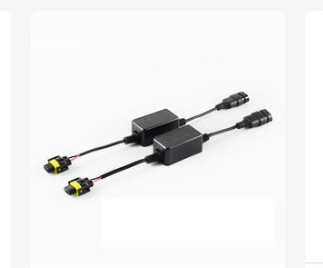An Introduction to Automotive Capacitors and Their Role in Modern Vehicles

Automotive technology has made remarkable strides over the years, and capacitors have emerged as critical components enabling this progress. Automotive capacitors play a vital role in modern vehicles, supporting various systems that enhance performance, reliability, and safety. This article offers a professional overview of what automotive capacitor are, their functions, and their applications in today’s advanced vehicles.
What Are Automotive Capacitors?
automotive capacitor , as electronic components, store and release electrical energy. Automotive capacitors, specifically designed for vehicle environments, are built to withstand extreme temperature variations, vibrations, and long-term wear. They come in various materials and designs, including ceramic, aluminum electrolytic, and film capacitors, each tailored to meet specific automotive needs.
These capacitors play an indispensable role in the proper functioning of modern vehicles, from ensuring stable power delivery to minimizing electrical noise across systems.
Key Functions of Automotive Capacitors
1. Power Stabilization
Automotive capacitors ensure uninterrupted power flow to critical systems, even during voltage fluctuations caused by the vehicle’s startup or operation. They work to smooth out inconsistencies, crucial for sensitive electronics such as infotainment systems and GPS navigation.
2. Energy Storage
Capacitors act as temporary energy reservoirs, releasing stored energy during demand peaks. This function is vital for hybrid and electric vehicles, where capacitors supplement battery performance in high-energy usage scenarios such as acceleration or regenerative braking.
3. Noise Filtering
Modern cars rely heavily on electronic systems, from advanced driver-assistance systems (ADAS) to entertainment features. Automotive capacitors filter out electrical noise that could interfere with these systems, ensuring seamless operation and preventing disruptions.
4. Enhancing Longevity of Components
By reducing stress on the electrical system, capacitors contribute to the longevity of sensitive electronic components. Their ability to stabilize voltage ensures that these parts are not subjected to damaging power surges.
Applications of Automotive Capacitors
1. Electric and Hybrid Vehicles (EVs and HEVs)
Capacitors are pivotal in electric and hybrid vehicles, where they support battery efficiency and handle bursts of high power during key operations. For example, they assist in regenerative braking by capturing and storing energy for future use.
2. Engine Control Units (ECUs)
Capacitors play an essential role in engine management systems, ensuring smooth and efficient operation. They regulate electrical input, supporting accurate control over fuel injection, ignition timing, and other engine functions.
3. Lighting Systems
Automotive lighting, including LED headlights and interior illumination, relies on capacitors to maintain consistent performance. They improve energy efficiency while ensuring stable brightness even under varying conditions.
4. Entertainment and Connectivity Systems
Capacitors are integral for infotainment systems, preventing interruptions and minimizing delay in audio-video playback, wireless charging, and connectivity.
5. Advanced Driver-Assistance Systems (ADAS)
ADAS features, such as adaptive cruise control and parking assist, depend on capacitors for reliable power delivery and noise filtering. These components ensure data transmission between sensors and processors remains unhindered.
The Future of Automotive Capacitors
The automotive industry is rapidly advancing, and emerging technologies such as autonomous driving and connected vehicle systems are pushing the capabilities of capacitors further. With trends shifting towards energy-efficient solutions, capacitors are becoming smaller, lighter, and more efficient to meet the demands of next-generation vehicles.
Additionally, the increased adoption of electric and hybrid vehicles is driving innovation in capacitor technologies, ensuring they can manage higher energy requirements while maintaining reliability.
Wrapping Up
Automotive capacitors are essential components enabling the sophisticated systems that define modern vehicles. From stabilizing power delivery to supporting emerging green energy vehicles, their applications are vast and indispensable. Professionals in the automotive industry must continue to focus on advancing capacitor technologies to meet the evolving demands of transportation.
By understanding the role of capacitors in automotive systems, businesses and engineers can better design vehicles that are more efficient, reliable, and future-ready.
